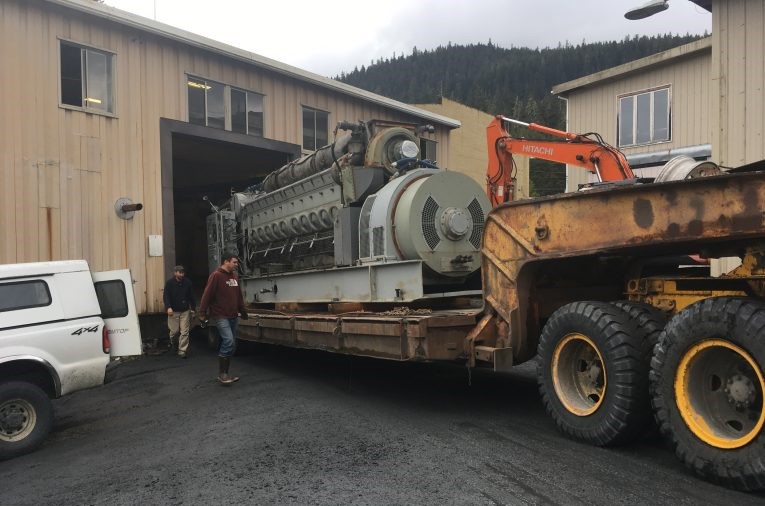
A vicious windstorm that hit Wrangell in late November left some people without power for nearly two days and also left some of the community’s critical infrastructure in the dark.
There’s not backup generation for Wrangell’s water treatment plant. The water plant stopped filtering and treating source water from the reservoirs for a few hours during the November outage.
“We were basically down to what we had in storage until the power came back on,” said Wrangell’s Public Works director Tom Wetor.
There’s a battery bank at the plant that operators use to keep some things moving, but most of the equipment is down for the count without power. That includes monitoring the chlorine levels in the drinking water as required by law.
The water plant does have about 850,000 gallons of treated water in reserve. But after 12 – 24 hours, that can run dry.
“And that’s just on a normal day,” said Wetor. “If we were doing high flows during the middle of the summer, or if we had a water main break in the middle of that, that time frame could be reduced to a matter of a couple hours.”
Parts of Wrangell’s sewer pump system also don’t have electrical backups. When the power goes off, stations pumping wastewater out the road can’t work.
“You know, if the outage would have gone for much longer, good chance we would have seen sewage overflowing in a lot more places,” Wetor said.
Wrangell’s municipality does have five electrical generators with capability to power the whole community, but if transmission lines are down, diesel generators can’t get electricity past broken lines.
The storm also took out the runway lights at Wrangell’s state-owned airport, prompting the borough assembly to allocate the remaining $80,000 of its federal pandemic relief to buy a generator for the airport’s runway lights. That’s so that planes – including medevac flights – can get in if there’s an extended community blackout. But that decision wasn’t without frustration.
Wrangell’s mayor Steve Prysunka argued the Alaska Department of Transportation should be responsible for its own airport.
“Why we have to go and spend our money on state generators to keep our airport lit up is beyond me,” Prysunka said at the assembly meeting. “I think I know the answer to that. But we had the perfect storm. Exactly what we said could happen, happened, and we’re out.”
But Pat Carroll, deputy director for the state’s regional transportation office in Juneau, said the regional office is no longer installing generators at its airports. And in jet-served communities that do have them, such as Ketchikan, Petersburg, Sitka, Gustavus and Yakutat– they won’t be replaced after they wear out.
“This is not a formal established policy,” he said in an email. “DOT has found over time that backup power generators are rarely used and are expensive to install and maintain.”
Wrangell’s key emergency coordinators have told the assembly there’s a lot of work to do.
“There’s a lot of things that we do need to work on,” Fire Captain Dorianne Sprehe said at a recent borough meeting. “One of the largest items was our emergency operations plan for the city…It was written in 2001, and has really never been looked at since. So somewhere it’s holding up all the other binders that are really important. But we really need to address that.”
But for electrical emergencies in the water and wastewater systems, solutions are complex, spendy or both. For example, a backup generator for the water treatment plant would cost around $250,000.
“We’re a remote place that has a lot of challenges when it comes to our infrastructure, and generators are expensive,” said Tom Wetor, the public works director. “It’s one of those things: you don’t need it until you need it… It sounds like a lot of money, and it is. And we want to be prudent and fiscally responsible and things like that, and we also want to make sure that we are doing everything that we can to protect the life, health and safety of everybody living here.”
That’s not to say it’s all darkness. In Wrangell, both the new hospital and the vacant old one have generators. The fire department has a mobile generator on a trailer it can deploy as needed. And as November’s storm showed, many Wrangellites have smaller generators they can use for their own houses or to help others.
